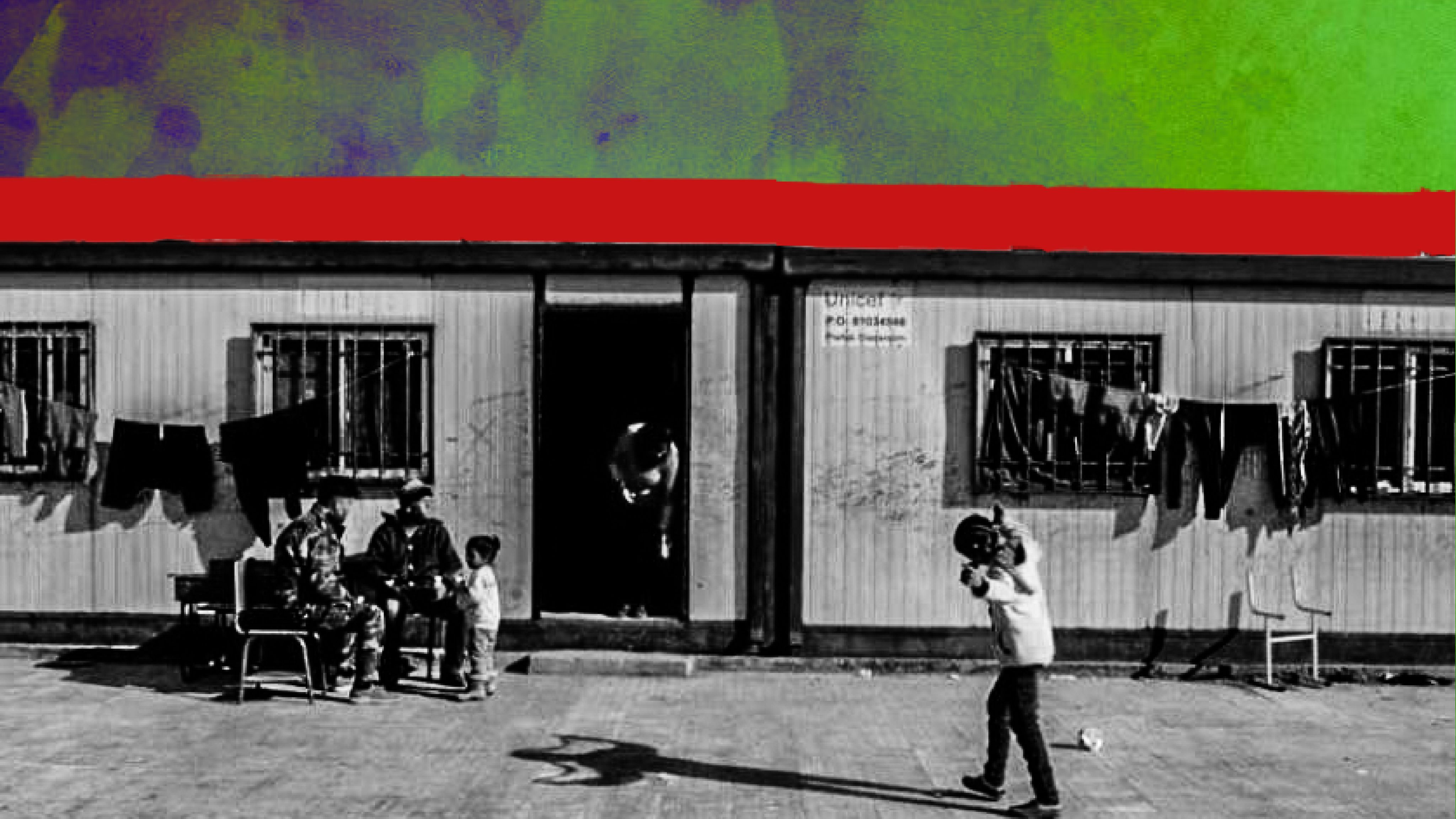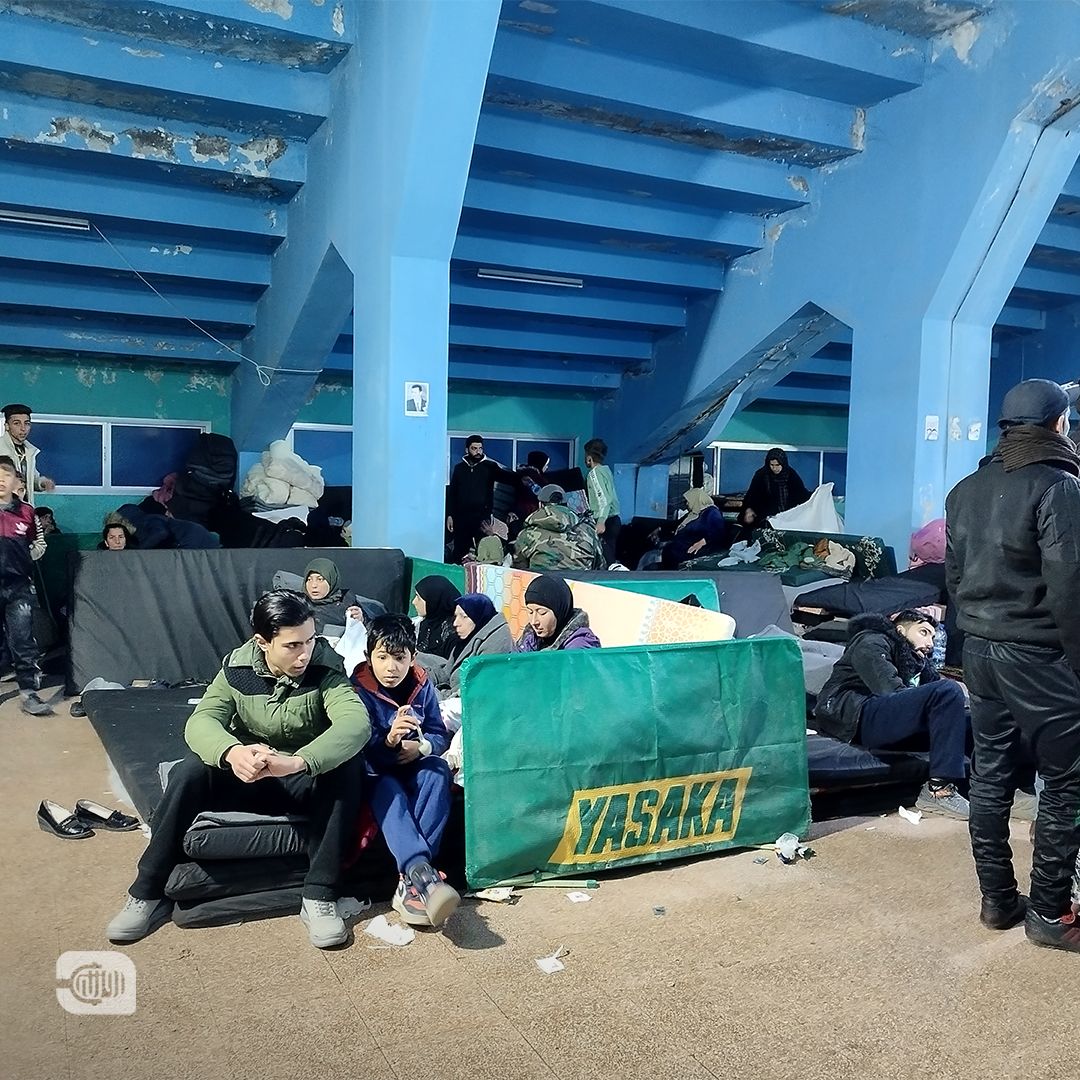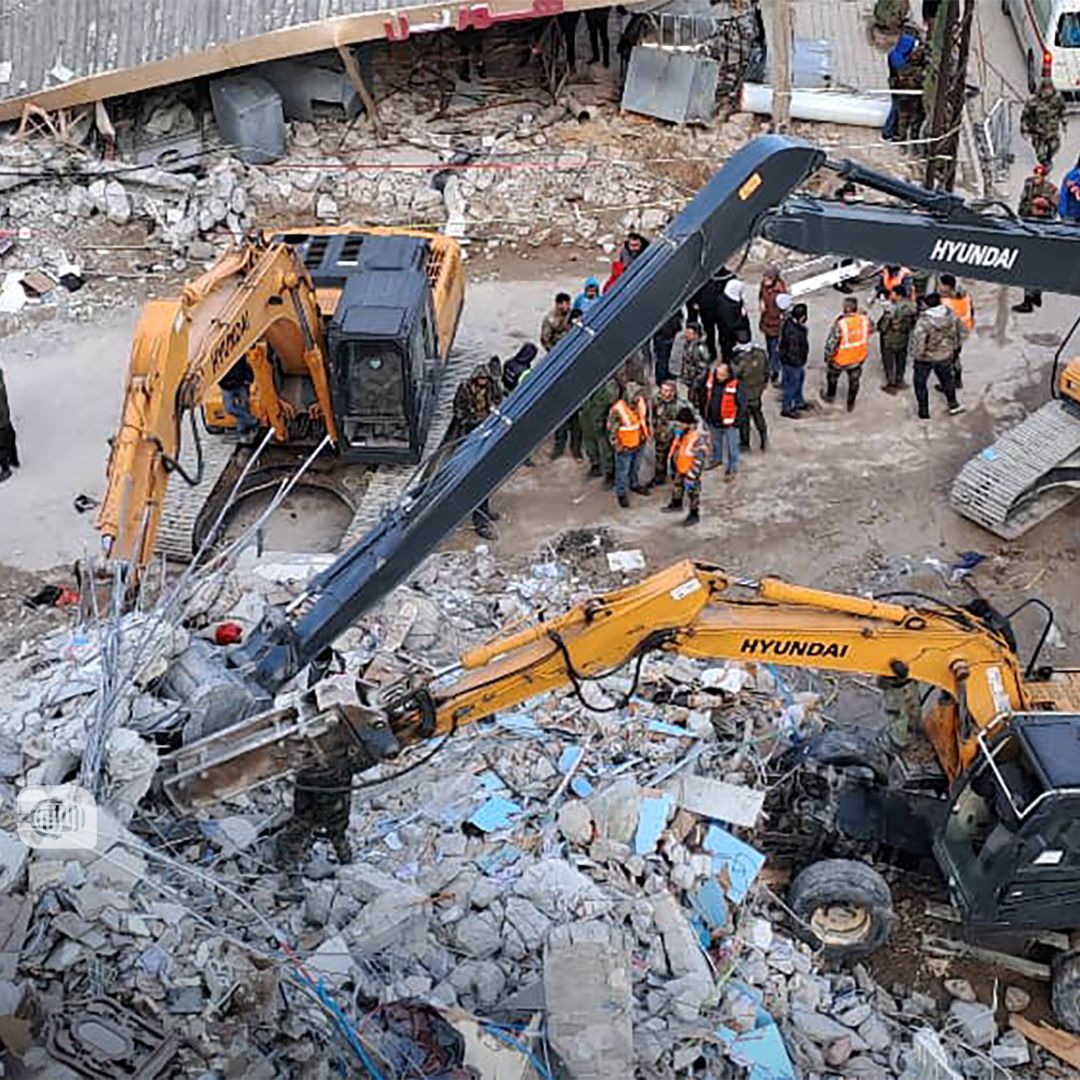
Earthquake Survivors: No Housing Plan, No Alternatives, Shelters Are the Only Option
Habib Shihadha
Residents of Aleppo and Latakia wish to have an alternative accommodation, or for their houses that have been destroyed and evacuated after the earthquake to be reconstructed. However, what the residents of Marota city in Damascus have experienced with alternative accommodation; and what they have suffered with the governorate for many years after evacuating their houses for regulatory purposes, don’t promise a come-true ending to the wishes of the affected in both cities.
Useless Loans
Ali, a Syrian youngman in his thirties, was affected by the earthquake that destroyed his house. He also lost his source of income: his car. In an interview with Rozana, he demanded the government to use donations in reconstructing the destroyed houses.
If the youngman gets a Saned loan, he will presumably be paying 250 thousand pounds each month for 6 years. “How will I pay 250 thousand Syrian pounds, when I am jobless?” he wonders.
On February 18, the National Microfinance Bank launched the Saned loan for restoring and rehabilitating earthquake-destroyed houses in Aleppo; Latakia; and Hama. The loan is interest-free, with a financing value of up to 18 million Syrian pounds and a six-year repayment period.
Ali, who’s currently staying at a relative’s house in Jableh due to the circumstances, feels that losing his parents in the earthquake outweighs all losses. He even wishes he hadn’t survived to witness the post-quake crises.

High Rent Prices
Nearly 300 thousand Syrians, in affected cities, live in 226 shelters. They’ve lost everything, and even some of their loved ones. Whoever is thinking about leaving the shelter will be shocked by the high rent prices in Aleppo and Latakia.
Nada is a 46-year-old mother of four, who has been living in a rented house in al-Raml al-Janoubi after being displaced from Idlib. “I left my house, due to the cracks. And I am currently staying at the mosque,” she explains. Nada can’t go back to her house, as it was sealed with red wax and declared uninhabitable.
The woman, who works as a cleaning lady for a school in Latakia, receives a monthly payment of 100 thousand Syrian pounds. She explains that rent prices have increased, significantly, beyond her financial means. She used to spend 150 thousand Syrian pounds on rent. Now, she needs more than 450 thousand Syrian pounds a month so that she would be able to rent the same house. Furthermore, she can’t benefit from any governmental restoration or construction loans because she’s not a landlord.
336 buildings have been completely destroyed in Latakia, and must be evacuated and demolished. 1697 buildings are 60% destroyed, and need restoration. 5819 buildings are 20% destroyed, and need minor maintenance. 6430 buildings have been inspected in Aleppo, 198 buildings of which have been completely destroyed; and 1093 buildings need restoration ــــ according to what Hussein Makhlouf said, on February 16, before the People’s Assembly, addressing the procedures of helping those who were affected by the earthquake.
The governorates of Latakia and Aleppo requested the owners of the destroyed houses to provide a document with the number of the property and the name of the owner, for regulatory purposes related to the affected receiving the aid; and knowing whether their houses are destroyed and need restoration.

Latakia - Attempts to Rescue the Victims
Latakia - Attempts to Rescue the Victims
No Housing Plan
Article 24 of the Syrian constitution (2012) states that, “The state shall shoulder, in solidarity with the community, the burdens resulting from natural disasters”. However, the government hasn’t yet announced any plans to reconstruct or restore the destroyed houses. It has only established a national fund, four days after the earthquake, for rehabilitating the affected areas, with no further information on how it’s funded; how the affected will be compensated; or to which agency it’s affiliated.
Younes al-Karim, the CEO of Iqtisadi, believes that the fund established during the emergency special session is not subject to any reviews by relevant ministries. According to al-Karim, it should be implemented directly, without any contributions to the operational mechanisms, since it’s a resolution from the highest administrative authority.
"The resolution to establish the fund is political, before it’s economic. A number of ministries are involved in the implementation process, unlike the independent bodies of all the regime’s special committees,” al-Karim told Rozana.

Funding Channels
As part of the reconstruction process, al-Karim believes that five sources will be financing the fund. The first is governmental, like reconstruction taxes; or new solidarity taxes that might be imposed on expats, and paid in foreign currency.
The second is budget transfers, which means moving funds from one item of the respective ministries’s budgets to another item. It’s either that or borrowing money from the budget of the following year ــــ even though the current budget is 80% less than the last year’s, given the current dollar exchange rate. According to al-Karim, following this funding method means that they’re incapable of having it implemented ــــneither in the short term, nor in the medium term.
The third is aid from allied countries, or international earthquake relief funds. This method, al-Karim believes, is a way to overcome poor funding and attract investors.
As for the fourth, it’s the United Nations funds; and the regime’s assets reserved by the UN like the previously used Special Drawing Rights. And the fifth is giving funding grants to institutions of the pro-regime countries in exchange for privileges.
Government’s Stopgap Solutions
Minister of Public Works and Housing, Suhail Abdullatif, announced that 300 previously-built housing units will be offered to the families that have lost their houses in the earthquake. In consideration of priorities, the units should be delivered to select locations in a month.
Nevertheless, the ministry’s plan to secure 300 mobile housing units in a month might be an indicator that the government is unwilling to fulfill its responsibilities towards the affected; and that it’s coming up with long-term stopgap solutions.
Founder of Nation Building Movement, Anas Joudeh, thinks that most of those whose houses were destroyed in the earthquake will end up like those who lost their houses in the war, as long as the rescue operation is on a local-level and not collective. The political solution in Syria, Joudeh explains on his Facebook page, must be a gateway to secure enough sources; and to open doors for the return of Syrian investments.
Naturally, no reconstructions will take place without a political solution that would be convincing for all international parties. Al-Karim asserts that the regime is trying to politically take advantage of the earthquake, to evade the Caesar act; and to execute agreements that would be binding on international parties for a long period of time. Should this happen, it’ll be through the relief fund whose work is in connection with the three ministries most important to citizens; and civil and local community: Health, Housing and Construction, and Local Administration.
Community Work Is Not Enough
To help secure accommodation for the affected, some community organizations in Latakia and Aleppo rented about 20 houses in Latakia and nearly 45 other houses in Aleppo. The leases are pre-paid on behalf of the affected families for a whole year, civil activist Muhammad Hassan told Rozana.
Hassan, who works for a civil society organization in Aleppo, adds that the number of families staying at shelters is large: international and governmental efforts are needed so that families would be able to find temporary houses, until their destroyed ones are reconstructed. “Even if community work has contributed to saving some families, it will still be insufficient in the face of such a disaster,” Hassan told Rozana.
Al-Karim asserts that reconstruction processes aren’t carried out by local companies due to the extent of the damage, and that international companies that cannot work over six months (the period of partial lifting of sanctions) are needed instead. Grants and aid provided by Gulf Cooperation Council countries and allies don’t seem promising enough in the meantime, he adds, for the fund to have an activity beyond inviting countries around the world to coordinate with the regime.
With the government moving slowly to fulfill its commitment towards the affected; and the rent prices being unreasonably high, shelters remain to be the only option for those who have lost their houses due to destruction or evacuation.
